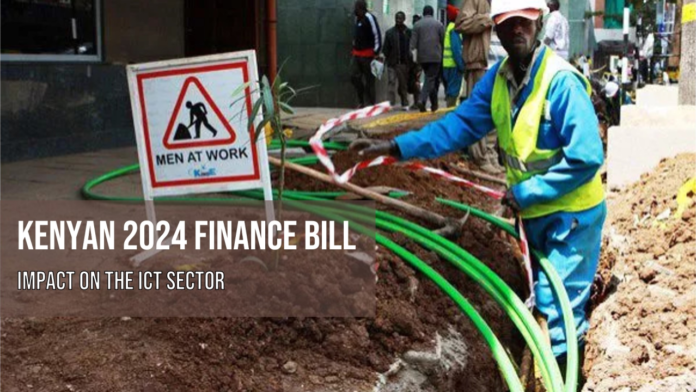THis post has been updated after the attention it is gannering. The original post can be found here: https://web.archive.org/web/20240813033032/https://blog.blancorpsolutions.com/kenya/concerns-about-the-ict-bill-2024-in-kenya/
Kenya’s tech industry has been a beacon of innovation and growth, thanks in part to a regulatory environment that has allowed startups and innovators to thrive. This is evident from the multitude of tech companies heading over to Kenya and the increasing number of tech offerings originating from Kenya.
As usual, there are always prospects to advance, regulate and maintain order in any field, especially if it gains much momentum. There are case studies on this globally for anyone to check, the most prominent one being the EU laws on tech. In Kenya, one such regulation has been floated. This is the proposed ICT Bill 2024.
What is this bill?
The Information and Communications Technology Authority Bill, 2024 (ICT Bill 2024) is currently a draft bill proposed by the Cabinet Secretary of Kenya’s Ministry of ICT and Digital Economy as of April 2024. This draft represents an early legislative stage and would need to pass through the Kenyan Parliament to be enacted into law.
As of now, it has not yet been confirmed as law. The legislative process will require debate, potential amendments, and approval by the National Assembly, and possibly the Senate, before it can be signed by the President and fully enacted.
Where are we currently?
The current regulatory framework in Kenya, while not perfect, has enabled significant job creation and economic development. It has encouraged a innovative culture of entrepreneurship where ideas have flourished without unnecessary barriers, in an economy that is growing and adapting quickly. Remember Kenya is a third world country, and has been rated to grow quickly in the next several years by the IMF and World Bank.
The Bill
The ICT Bill 2024, if passed in its current form, has been argued by techies in the country and outside the country to introduce stricter regulations that could completely kill innovation. For example, the new licensing requirements that are proposed will burden small businesses and startups. This in turn will make it hard or even impossible for them to compete and grow in a niche where competition is unlimited and extremely fierce.
The bill also includes provisions for increased government surveillance and data localization. Recently, this has raised a big debate in the country after the government seemed to actualize the surveillance topic by rolling out a plan to mass collect IMEI numbers from mobile phones. This has been proven elsewhere, for example in the EU, as a way to compromise user privacy and hinder the free flow of information that is crucial for a thriving digital economy.
It’s important to recognize that regulation is necessary to protect consumers and ensure fair competition. But we need to appreciate that overly restrictive measures risk undermining the very innovation they aim to promote. Remember we have not been told what issues in the economy this bill seeks to solve. There is not problem that the current regulations have produced that are highlighted in this bill to be updated.
As stakeholders in Kenya’s tech ecosystem, we must advocate for a balanced approach to regulation. We need policies that support innovation, protect privacy, and make for a competitive environment for businesses of all sizes.
As of October 2024, a few updates and discussions have been ongoing:
- The bill has been subjected to public debate and feedback where industry stakeholders including KICTANet expressed concerns. Most feedback from social media has been a massive rejection of this Bill.
- The bill required annual accreditation of all ICT professionals, which stirred a very significant opposition. This will limit entry into this sector, and is equated to gatekeeping an industry that should be open to anyone. Most techies are self taught and have not gone through the formal degree system and requiring this will bar a lot of people from gaining entry, while also denying a lot of clients their resources. This is also addition to the fact that most if not all of those pushing for this regulation either have conflict of interest or are not even ICT experts in any way, which raises authenticity concerns.
Conversation around this bill is still ongoing in private and public spaces, and as stakeholders, I still think that we have, and need to have the largest input to the laws that affect us. It is insensitive to curb us using persons who are not in our industry.
#KenyaTech #ICTBill2024 #Innovation #PrivacyProtection #EconomicGrowth #TechPolicy



